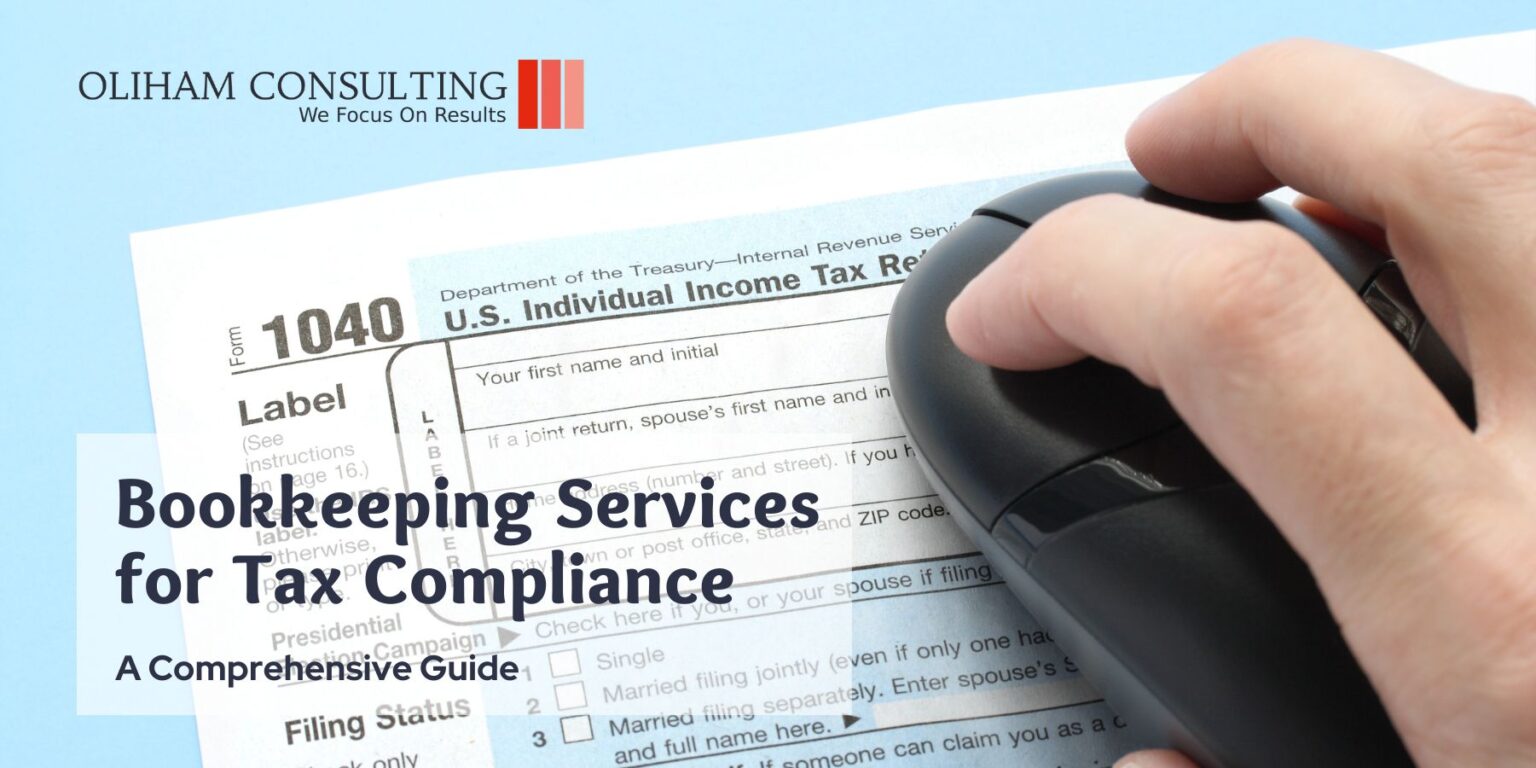Introduction: The Importance of Compliance with Tax Regulations for Businesses
compliance with tax regulations is not only necessary but also essential for businesses to operate ethically and avoid legal consequences. By utilizing bookkeeping and accounting services, businesses can ensure that their financial records are accurate, up-to-date, and compliant with applicable tax laws. This not only helps them avoid penalties but also provides peace of mind knowing that they are fulfilling their obligations as responsible corporate citizens.
The Role of Bookkeeping Services in Maintaining Accurate Financial Records
Accurate financial records are the backbone of any successful business. However, maintaining accurate and up-to-date financial records can be a daunting task for small business owners who already have their hands full with day-to-day operations.
This is where bookkeeping services play a vital role. These services specialize in managing financial records and ensuring their accuracy. By outsourcing this crucial task to professionals, small business owners can focus on what they do best – running their business.
The accuracy of financial records is paramount for small businesses as it helps them make informed decisions regarding budgeting, cash flow management, and investment opportunities.
In conclusion, bookkeeping services play a crucial role in maintaining accurate financial records for small businesses. Their expertise ensures compliance with regulations while providing valuable insights for decision-making purposes. By outsourcing this task to professionals, small business owners can focus on growing their business while having confidence in the accuracy of their financial records.
Understanding Tax Regulations and Reporting Requirements for Businesses
As a business owner, understanding tax regulations and reporting requirements is crucial to ensure compliance and avoid any potential penalties or legal issues.
The IRS provides comprehensive guidelines for businesses regarding their tax responsibilities. From corporate tax regulations to reporting requirements, these guidelines serve as a roadmap for businesses to follow.
One of the key aspects of tax regulations for businesses is understanding corporate tax. Different types of businesses have different tax structures and rates, and it’s essential to know which category your business falls under.
Additionally, reporting requirements play a vital role in maintaining transparency with the IRS. Businesses are required to submit various forms and documents at specific intervals throughout the year.
Seeking professional advice from accountants or tax consultants can also provide valuable insights tailored to your specific business needs.
Remember, being proactive in understanding and complying with tax regulations not only ensures smooth operations but also demonstrates good governance and financial responsibility for your business.
The Benefits of Outsourcing Bookkeeping Services to Ensure Compliance with Tax Laws
Outsourcing bookkeeping services can provide numerous benefits, especially when it comes to ensuring compliance with tax laws. By entrusting your accounting tasks to professional bookkeepers, you can alleviate the burden of managing complex financial records and focus on core business operations.
One of the key advantages of outsourcing is access to a team of experienced professionals who specialize in tax regulations and requirements. These experts stay up-to-date with the latest changes in tax laws, ensuring that your financial records are accurate and compliant.
Additionally, outsourcing bookkeeping services can save you time and resources. Instead of spending hours trying to reconcile accounts or organize receipts, you can rely on skilled professionals who efficiently handle these tasks.
Moreover, outsourcing provides a layer of objectivity and impartiality to your financial management. Professional bookkeepers maintain strict confidentiality standards and adhere to ethical practices while handling sensitive financial information.
Lastly, outsourcing offers scalability and flexibility for businesses of all sizes. As your business expands or experiences fluctuations in workload, outsourced bookkeeping services can easily adjust their support accordingly.
In conclusion, outsourcing bookkeeping services not only ensures compliance with tax laws but also provides numerous benefits such as access to expertise, time savings, objectivity in financial management, and scalability for business growth.
The Process of Ensuring Tax Compliance through Proper Bookkeeping Practices
Proper bookkeeping practices play a crucial role in ensuring tax compliance for businesses and individuals alike. By implementing effective bookkeeping strategies, one can efficiently track deductible expenses and income sources, ultimately minimizing the risk of non-compliance with tax regulations.
The tax compliance process begins with maintaining accurate financial records. This involves diligently recording all business transactions, including expenses and income.
Another essential aspect of bookkeeping for tax compliance is tracking income sources. It is crucial to accurately document all revenue streams to ensure that they are appropriately reported on tax returns. This includes tracking sales, service fees, rental income, or any other sources of revenue.
Furthermore, identifying and tracking deductible expenses is vital in maximizing potential tax deductions. By meticulously categorizing expenses such as business-related travel costs, office supplies, or professional fees, individuals and businesses can take advantage of available deductions and minimize their overall tax liability.
In summary, adhering to best bookkeeping practices is fundamental in ensuring tax compliance. By maintaining accurate financial records and diligently tracking deductible expenses and income sources, individuals and businesses can navigate the complex world of taxes with confidence while minimizing the risk of non-compliance.
The Importance of Regular Audits and Reviews to Maintain Tax Compliance
Maintaining tax compliance is crucial for businesses to avoid penalties and legal issues. One effective way to ensure compliance is through regular audits and reviews.
Audit preparation services play a vital role in this process, providing expertise and guidance to help businesses prepare for audits effectively. Regularly reviewing financial statements is another essential aspect of tax compliance. This involves carefully examining the accuracy of financial records, verifying that they align with relevant tax laws and regulations.
By conducting these audits and reviews on a consistent basis, companies can proactively address any issues before they escalate into more significant problems.
In conclusion, the importance of regular audits and reviews cannot be overstated when it comes to maintaining tax compliance. By tightening internal controls, utilizing audit preparation services, and reviewing financial statements diligently, businesses can ensure they meet all regulatory requirements while minimizing the risk of non-compliance.
Conclusion: How Bookkeeping Services Play a Crucial Role in Ensuring Businesses Comply with Tax Regulations
Bookkeeping services are essential for businesses of all sizes in meeting their obligations towards tax compliance. With their expertise in maintaining accurate records and providing valuable insights into financial matters, bookkeepers play a vital role in ensuring that businesses navigate through the complexities of tax regulations successfully while maximizing their financial benefits.





